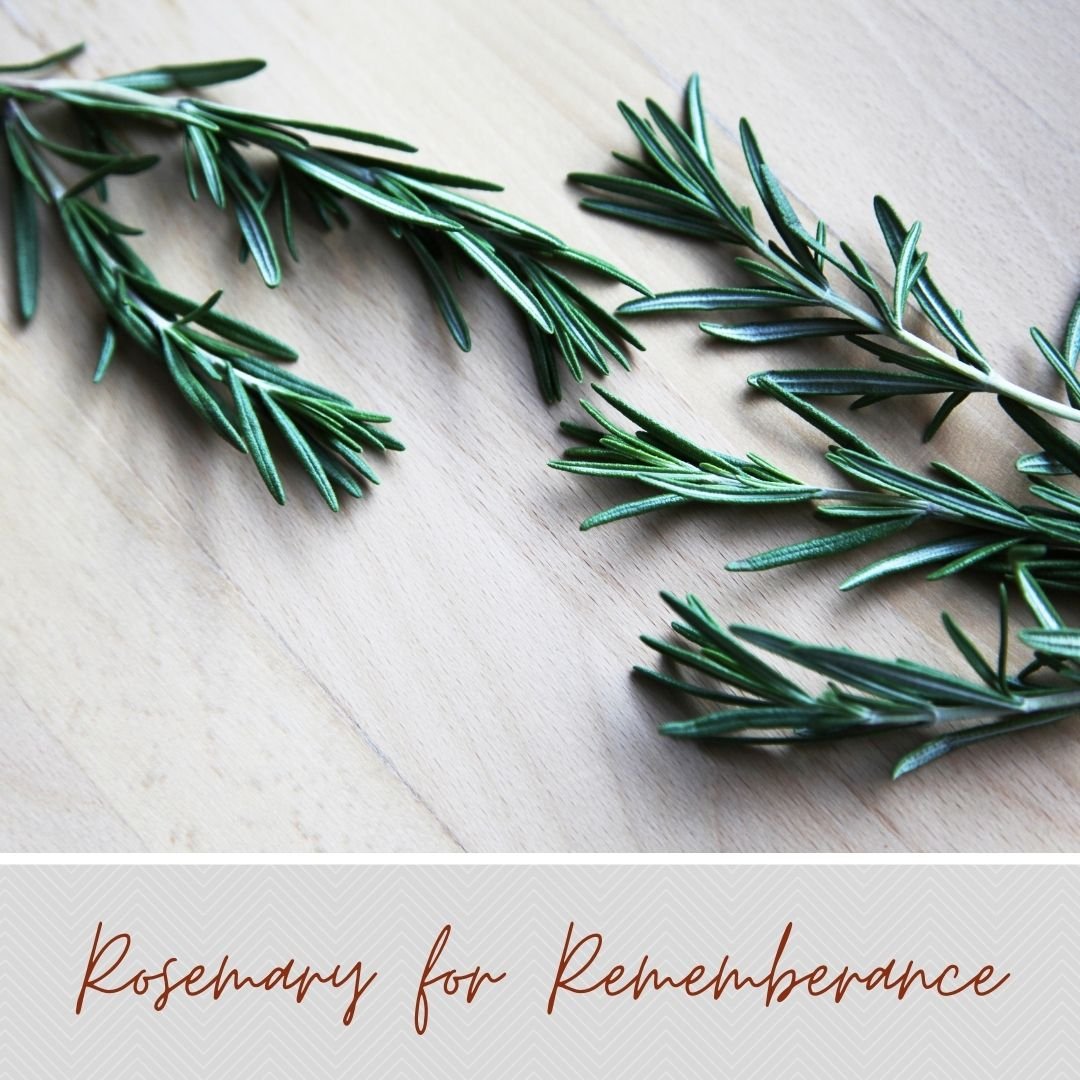Rosemary for Remembrance // Green Ally
Rosmarinus officinalus, also known as “dew of the sea” is one of our most beloved allies. Touted as a “cure-all” herb, Rosemary should be considered a staple in any kitchen and personal apothecary. As an evergreen herb that is drought tolerant and not very picky about soil, we can look to her for year-round medicine in almost any part of the world.
You have most likely heard of Rosemary as a popular culinary herb, and this is an excellent place to start. However, so much more is possible with her than just flavoring potatoes. Old herbals list Rosemary as an herb that “gladdens the heart”, and modern scientific study has caught up with this folkloric wisdom by confirming that Rosemary does indeed interact with our “happy hormones”, dopamine and serotonin. If you think that you are resigned to a certain level of happiness due to your genes, think again. Rosemary has been shown to act upon the gene expression of the individual in regards to the pathways for dopamine and serotonin release, thereby increasing your potential for pleasure and healing chronic depression. Rosemary also gladdens the physical heart through decreasing inflammation and increasing circulation, the two keys to deepening heart health. Speaking of circulation, this leads us to our next Rosemary adage, “Rosemary for Remembrance”. Rosemary can improve memory and concentration by decreasing anxiety and strengthening circulation in the brain. Look to Rosemary if you are experiencing brain fog or desiring to nurture your brain as it ages.
Rosemary is a powerful anti-septic and anti-pyretic and thus can be extremely useful for colds, flus, fevers, and wounds. Consider drinking Rosemary tea throughout the day when you are sick, or to address migraines due to stress or liver congestion. Rosemary stimulates the actions of the liver. It is also useful in calming an upset stomach, whether it is due to pathogens or not. In the Middle East, Rosemary was traditionally used in its dried powdered form on a baby’s umbilical cord wound to prevent infection. Spanish villagers pounded Rosemary into Salt as a wound cure for serious abrasions. You can apply Rosemary tincture or oil topically to wounds, as well as achy, stiff joints. Due to its effective anti-inflammatory action, Rosemary can be a great ally for those with arthritis, both internally and externally.
Also known as a beauty herb, European Gypsies had a passion for Rosemary as a beautifier, creating the traditional remedy known as The Queen of Hungary’s Water. Rosemary can be infused in hot water or extracted into vinegar to create a divine hair rinse, face wash, mouthwash, or footbath. As a hair rinse, Rosemary has been used to prevent lice on humans and as a tick repellent for pets. Rinsing your hair in Rosemary vinegar can also clear dandruff and help heal unprecedented hair loss. The herb itself can be hung in your home for protection, or placed with clothes and books to deter moths.
Rosemary as food or externally can be used by anyone, all the time. Rosemary extracts should be used for no more than 2-3 weeks at a time, 1-3 times a day and should be taken cautiously or not at all if you are pregnant, as it is a powerful stimulant.
Use Rosemary liberally in your food. Drink Rosemary tea often. Create Rosemary vinegar and put it on everything: your salads, your face, your hair, your dog, your home. Make a delectable Rosemary foot soak for aching feet and weary days.
When you are feeling low, whether it be low energy, blood pressure, circulation, or spirits, invite Rosemary into your life to lift your spirits and invigorate your body. You may just find a precious green ally to stick by your side through all seasons!
In Love,
Susan Marie
P.S. Curious about herbal medicine? We love to hear from you! Send me a message here or leave your thoughts and curiosities in the comments below!
Resources used for this Article:
A Druid's Herbal by Ellen Evert Hopman
Making Plant Medicine by Richo Cech
Herbal ABC’s: The Foundation of Herbal Medicine by Dr. Sharol Marie TilgnerThe Way of Herbs by Michael Tierra
Common Herbs for Natural Health by Juliette de Bairacli Levy

